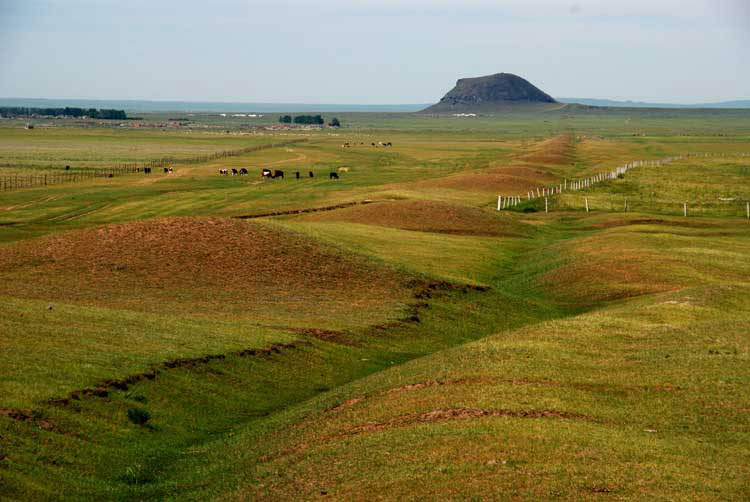|
North China to erect Great Wall protection signs
2010-10-02 00:00:00 / news.xinhuanet.com

HOHHOT, Oct.2 (Xinhua) -- North China's Inner Mongolia Autonomous Region will erect signs to protect sections of the Great Wall in the region, some of which are not widely known to be part of it.
According to a 2007 survey, nearly 90 percent of people in Inner Mongolia did not know that the Great Wall ran through the region, as they considered some 3-meter-tall adobe walls as "yard walls" rather than the Great Wall.
Each sign will specify the dynasty, year and length of a particular section of the Great Wall, and confirm it as protected, said Wang Dafang, an official with the cultural relics section of the region's Department of Culture.
The regional government signed warrants with the cultural bureaus of cities in the region Tuesday, requiring their commitments for the protection of the Great Wall, Wang said.
Cities in the region are preparing reports for the region's government about the Great Wall under their jurisdiction, and the region will allocate special funds to put up protection signs based on the reports.
The installation of the signs is expected to be completed by the end of this year.
The Great Wall, which was listed as a United Nations World Heritage Site in 1987, was first built in the Warring States Period (475 B.C.-221 B.C.) to defend China against invasion by northern nomadic tribes.

Jin Dynasty Great Wall at Inner Mongolia, Photo by Ma Zhixin From www.thegreatwall.com.cn
The Inner Mongolia Autonomous Region's 15,000-km piece of the Great Wall was built during different dynasties, accounting for one third of the country's total.
In 2009, two men from a mining company were jailed for drilling holes through a section of the Qin Dynasty (221 B.C.- 206 B.C.) Great Wall in Inner Mongolia. A similar case also happened in 2008 for damaging a section of the Ming Dynasty (1368-1644) Great Wall using heavy machinery also in the region.
"Protection signs will help those residents realize the existence of the Great Wall and avoid unintentional damages," Wang said.
(Written by Xinhua)

|

